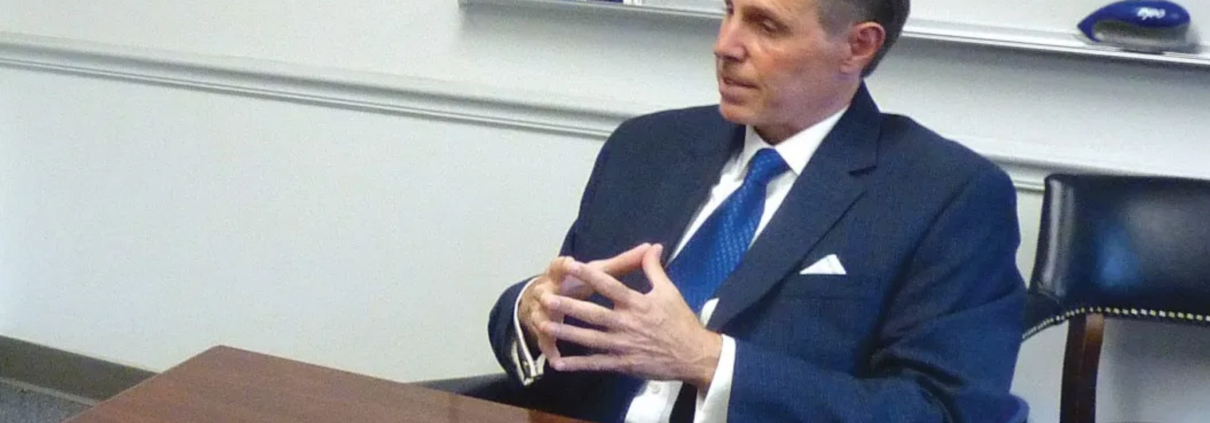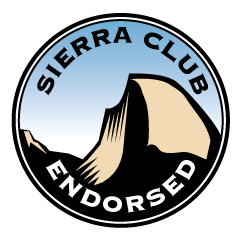2017 “State of the City” Interview, part 2
Last week, the News-Press published the first of its two-part “State of the City” interview with Falls Church Mayor David Tarter where he discussed the City Council’s passage of the most expensive infrastructure plan in City history, including the building of a new George Mason High School, renovation and expansion of the library, City Hall and parts of Mary Ellen Henderson Middle School.
In the second part of the conversation published this week, Tarter talks more about Falls Church’s development projects, what his legacy will be as mayor and the greatest challenges the City faces going forward.
News-Press: Can you provide an update on the Founder’s Row project and the Broad and Washington St. mixed use development?
Tarter: Founder’s Row is having some difficulty getting a hotel, as you recall that was a part of the deal — that the developers were going to provide a hotel and a movie theater — and they’re having difficulty with a hotel. They’ll come back and let us know that.
They’re considering revising their proposal to come back with age-restricted housing and that remains to be seen whether that’s going to be acceptable to Council as a whole. Some folks, I think, feel that “You struck a deal, the hotel is what you said you’re going to provide and that’s what you’ve got to live with.” We’re still in discussions with them, so I think they’re re-analyzing what they can’t do and can do there so I’m hopeful the project will go forward with a hotel and a movie theater as originally planned.
I think it’d be great for that part of town and great for the City as well for people to be able to walk, like they can walk to Harris Teeter, walk to a movie theater, walk to some nice retail. That’s been one of things I’ve focused on during my time on Council, creating a walkable, viable downtown and that fits in nicely with that.
As for Washington and Broad, it has some good things going for it. It approximately doubles the amount of office on that site, there will be brand new Class A office building which the City doesn’t have a whole lot of. It also would create a home for Creative Cauldron for the next 20-plus years and expand its size. But we’re still working with the developers. Some of the neighbors have concerns about height and other issues. It has an awful lot of apartments, but we’re working with them. We hope we can get to something that everybody will be happy with, but it’s a process still ongoing.
N-P: And who would the City like to see fill the retail space in the Broad and Washington project?
Tarter: They’re planning for a restaurant in some of that space, so the question is what else do we want to put there. The City would like as much as possible to get firm commitments for retailers and frankly get some kind of anchor retail tenant. Some of the most recent projects that have been approved have all had anchor tenants, such as the Harris Teeter. The Fresh Market grocery store didn’t pan out, but the City was able to push for and get a Target Express there, which I think is pretty exciting. We’ve tried to shape development to make it financially creative to the City, but also to enhance quality of life. To provide services and goods and other things that people don’t have to get in their car and drive with and people from outside our community will come to Falls Church and spend their tax dollars here in our city instead of driving through.
N-P: Some people are resistant to the City’s push for development. How do you go about reassuring them that Falls Church will still maintain it’s unique small-town vibe?
Tarter: First off, it’s planning. We’ve done four small area plans for our city and that process involved boards and commissions, neighbors, property owners — all sorts of folks who have an interest in the property, so that first step is just to plan and to let people know what you’re thinking so no one’s surprised by what might come next door to them.
As projects come in we’ve tried to involve the neighborhood. I’ve tried to have walking tours of every new project that’s come in before they go for final hearing, which we’ve done. It allows us to get out and actually see how it’s going to affect the neighbors. We also meet neighbors extensively. Almost everyone on the Council meets with neighbors to address and hear their concerns. There are things you can do to mitigate issues, for example one is called “dark sky lighting,” which has the lighting directed downward and not outward.
N-P: Tysons Corner is also experiencing a boom in development. Is there any prospect of the two localities working together to reach mutually beneficial development goals?
Tarter: We have not been working directly with Tysons Corner. We’re a different market, a different community. We don’t want to be Tysons Corner, so people want – and we should have – our own unique feel to Falls Church. We’re not trying to be something we aren’t, so I suspect we won’t spend a lot of time working directly with Tysons Corner to have some kind of integrated development. We’re our own sub-market: We also don’t want to be Ballston. We want to be Falls Church. We can learn from them and what they’re doing — what works and doesn’t work — but I would not envision us having the same size buildings and massing and density that they have in Tysons Corner.
N-P: How are the efforts to bring about alternative transportation going, such as the Bike Share program?
Tarter: I think it’s really exciting for the City. We do have a grant for both the Bike Share capital improvements — that’s for installing and paying for the stations — and then also for operations for five years. We’re going to be able to roll that out in the spring. In the next month or two we’re going to be finalizing locations. They’re going to be spread around the city, so people can use Bike Share to get around the city but also to get to Metro stations and that’s really exciting.
We updated our streetscape standards in the past year or so to make the city more walkable. We got a grant for $900,000 for traffic calming. We’re going to try to make our streets safer for our kids and for everyone, more pedestrian walkways, more crosswalks. We’ve also got a project on South Washington St. that’s approximately $2 million for undergrounding utility lines and also improve the streetscape and the pedestrian experience, so we’re very interested in getting people out of cars and getting them to walk and bike in our city.
N-P: How do you see Falls Church evolving over the next couple of years?
Tarter: I see a lot of efforts we’re doing continuing on in terms of trying to make our downtown more vibrant, more walkable. The past few years we’ve made great strides on both bikeability and walkability and trying to tie in the Metro stations better. Trying to create that downtown where people want to come and spend money that will help pay for the good things we want to do in the city — our schools and other infrastructure — and at the same time, preserving our residential areas, such as by drawing the line where your commercial areas don’t expand into your established residential neighborhoods.
I envision us staying a small community, but a great community. A place that’s going to be sought out and where people are going to want to come for both business but also to live. I think it’s an exciting time to be in Falls Church.
N-P: And how do you see your personal legacy being remembered by the citizens?
Tarter: I’ll leave that to others. I hope I’ve made a small difference in my community. I love Falls Church, it’s been a great pleasure and honor to participate in Falls Church government. It’s been a group effort though. We on Council work together and so whatever accomplishments we’ve had are shared by everyone on Council and frankly everyone in the community. So, I’m not sure what legacy I’ll have but hopefully I’ll be able to make a small difference on my community.
N-P: What do you think the greatest challenge is moving forward for Falls Church?
Tarter: Our greatest challenge is managing and paying for the ambitious Capital Improvement projects that we have in the near future: the school, library, City Hall, the other things we want to do. It’s a very ambitious program. It’s going to be very expensive, so we’ve got to make sure we execute properly. I want to make sure everyone’s involved in the decisions that are coming and people have enough information to make good decisions and to offer good input. We really have to be on the top of our game and make sure that everything goes well, we don’t have cost overruns and that we get the most from our 10 acres, if that’s the decision of the community, to go forward with the referendum. We really have to be smart with how we go forward, but I think the biggest challenge is really, again, paying for and getting these capital improvements done in a timely and cost-efficient manner.




